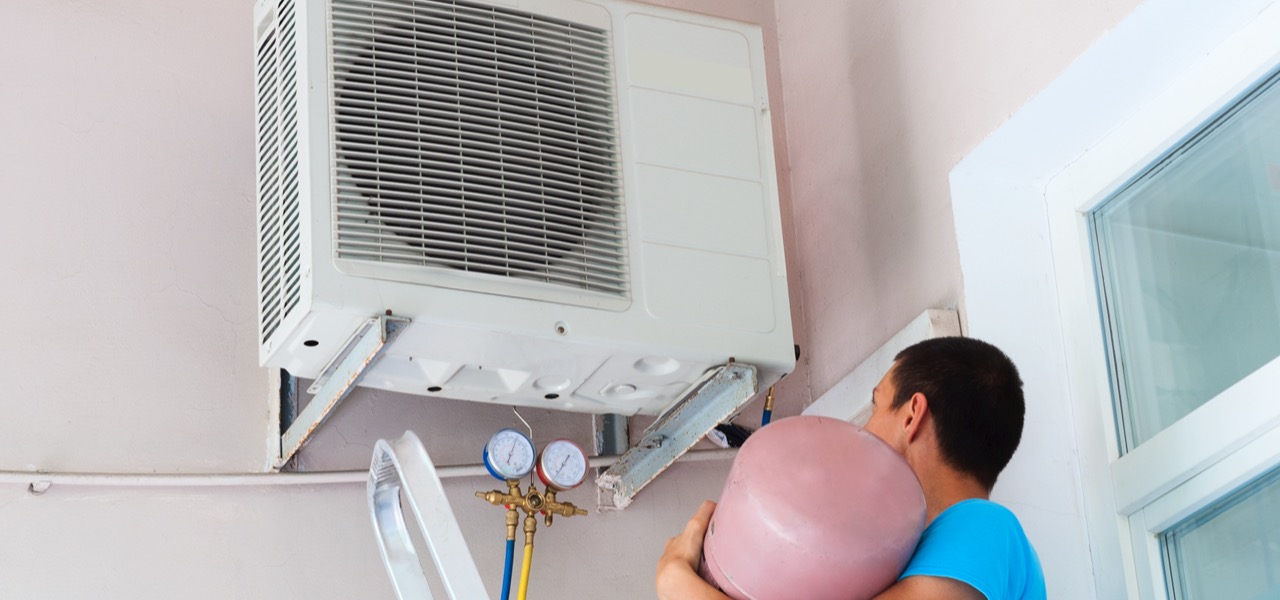
Air conditioner recharge in Panevėžys
About this service
Air conditioner recharge
If it’s a hot summer day and your A/C isn’t cooling the air, you’ve got an urgent problem to solve. When your air conditioner begins circulating warm air, it’s worth checking the system for any leaks. After repairs, get the refreshing breeze back by recharging your A/C. A comfortable room temperature at home or in the office will help you feel at your best, work more productively and genuinely enjoy even the hottest days. Find an air conditioner recharge pro on Discontract.
Learn morePopular PROs
Order this service via Discontract App
Try the Discontract mobile app for free now. Order services quickly and conveniently, and choose service providers based on their ratings, prices, and work experience. Do you provide services? Join our professionals and receive payments for your work within 24 hours.

About this service
Air conditioner recharge
When you’re feeling comfortably cool and dry, you don’t want to know or hear more about your air conditioning system. Until the time comes, and you need to recharge it. Here you will find everything you need to know about recharging you AC.
Your unit should function properly and keep your home cool and comfortable all summer long if you do a yearly air conditioner check-up and regular filter changes. However, there’s something wrong if warm or room-temperature air is coming out of your vents. Most likely your air conditioning unit needs a recharge.
If you have ever heard someone talking about recharging an AC unit, it was definitely a talk about adding more refrigerant to the unit and ensuring the refrigerant is properly pressurized within the refrigerant system. If you need Freon for your air conditioner, make sure to contact a professional heating and cooling technician that has all the required certifications for working with the refrigerant.
What you to know about recharging your AC unit:
How often does your AC need a recharge?
Actually, the refrigerant systems within AC units are sealed. This means that home air conditioning units are designed not to be recharged unless a leak develops in the refrigerant system. During your yearly AC tune-up, the technician will make sure that your unit’s refrigerant levels and refrigerant pressure are at the normal level and that the refrigerant system is leak-free. If there is a leak in your refrigerant system, it has to be repaired, and the refrigerant system will need a refill.
The warm air will come out of your vents most of the time when an AC unit is leaking refrigerant. That’s because the refrigerant is no longer there to cool the air circulating through your unit. But it won’t happen in a day, like it might in the case of, for example, a broken thermostat. The air will slowly go from cool to warmer over time as your unit’s refrigerant leaks out, so this will be noticeable over weeks or months, as your unit’s effectiveness diminishes.
Ice or frost in or on the unit is another sign that there’s a leak of the refrigerant. The refrigerant gas cools everything it touches to the point of freezing – that’s how it works with the air to cools it down. If you look inside your unit, it’s normal to see some frosty-looking coiled pipes. They are your condenser coils which is a primary part of the refrigerant system. However, if everything inside your unit looks frozen, or you’re seeing frost on the outside of the unit, it probably is the result of a leak.
AC recharge cost
The cause of the leak could have a major influence on the cost of recharging your home air conditioner. As well as the costs of the refrigerant for your AC and having a professional refill will depend on the service provider you choose.
If your AC unit needs a recharge, somewhere in the system is a problem that needs to be fixed, which can mean an added expense.
5 bad signs about your ventilation system.
Are you thinking there might be something suspicious about your ventilation system? If you notice any of these signs, now is the time to call a ventilation system specialist and get it replaced.
Sign #1: The airflow coming out of the vents is unusually weak
No amount of ice or good thoughts will break the swelter like a central air conditioner can in a hot summer day. But if the vents are barely blowing the air out, you will need to stand a lot closer to your AC to get cool — and spend some more of your hard-earned money on your utility bill.
Weak airflow could happen when your ventilation system starts to overwork. The extra strain can be caused by dirty filters, incorrectly sized ductwork, or anything else related to the pressure in your cooling system. If you’re currently finding yourself lying on the ground directly below your AC vent, it’s about time you call a professional.
Sign #2: There‘s a bad smell from your duct system.
If you smell something bad and you think it could be the air circulating through your AC, you’re probably dealing with one of two common ventilation system‘s problems: electrical issues or mold.
If there‘s a problem with draining in your system, it could be breeding mildew and mold, which collect around the unit’s indoor condenser coil. The mold could also develop if there’s a leak in one of your ducts. In this case moisture gets into your ductwork. Moreover, if spores are collecting in your central AC, they’re being carried into the space of your home. Unfortunately, it‘s not possible to cover the smell or worse, protect you from the potential of illnesses and health issues, caused by the mold.
You can also smell if there’s something burning inside of your home. If you turn on your AC and it smells like something’s on fire, most likely the insulation around the wires in your AC system are beginning to wear thin. If you don’t solve the issue, it will get dangerous. The smell burning is there not without a reason – it could literally start a fire.
Call your ventilation system contractor immediately, as soon as you smell something burnt coming from your AC or heating system.
Sign #3: The AC is on, but it feels like you‘re in sauna.
Damp air in your home is a different kind of problem compared to an overworked AC unit or spores in your ductwork. The today‘s modern central air conditioning systems can fight humidity by condensing hot, moist air into liquid, which is drained from the house. However, the evaporating coil that is responsible for the condensation can break.
If you usually have dump air in your area, you’re shouldn’t be surprised that moist air feels hotter than dry air. So, to remove the humidity from the air in your home it requires both cooling the space and keeping it cool by reducing the amount of water in the air. If there is an old system in your home, humid temperatures will make the AC run longer.
If the unit is being overused, it will affect the energy bills that you’re getting, costing you money and overwhelming your ventilation system. If your home starts to feel like a pool of warm water, contact an air conditioning installation specialist to come and check your system. There might also be an alternative suggestion to your problem, like installing a dehumidifier to help your AC system keep pace in the summer swelter.
Sign #4: Your energy costs got twice as high the same time last season.
If you start getting your utility bill, which is twice as expensive as it was last year, even though the weather is almost the same — there might be a problem inside your ventilation system.
Maybe your electricity company started charging you for something that you’re not familiar with (like calibrating a new meter outside your home), but it’s highly possible that something is wrong with the temperature control system. Energy efficiency ratio can change very easily (and your energy bills to grow as well) if any single part of your ventilation system is not working properly.
It could be that your needs for cool air in your home doubled and you haven’t really noticed that. Thus, increased energy costs shouldn’t be the only reason to buy a whole new air conditioner system. There is a possibility that your old system works fine, there’s just a broken link somewhere, waiting to be fixed.
Hire a professional to give your home an energy audit and check all the ventilation system with all of it’s components to make sure everything is working as it should.
Sign #5: The estimated costs to repair your old unit are bigger than buying a new one.
If you don’t ignore your ventilation system, it should last around 15 years. Thus, it’s not a surprise if bigger issues appear around the 10-year mark. When that happens, think ahead – whether the repair costs are worth saving your old system.
The appliances that the ventilation systems are made of get more efficient – and if technology continues to advance at this rate, it’s likely this will always be the case. Having this in mind, sometimes a full replacement makes even more sense.
Are you hesitating about giving up on your old AC system? Start with comparing the energy efficiency you’re getting from your current appliances with what’s on the market online.
Find an air conditioning system expert near you
If you checked most of the bad signs of your air conditioning system and the air coming out of your vents is suspiciously warm, it’s about time to call the technician. Find one near you in today.